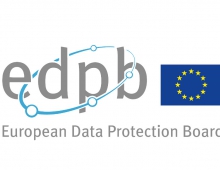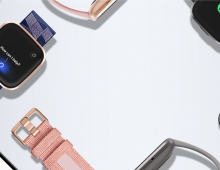
Fitbit Launches Study to Test if Wearables Can Detect Irregular Heart Rhythms
Fitbit Inc on Wednesday launched a virtual study to test if its wearable devices can detect irregular heart rhythms or atrial fibrillation.
Atrial fibrillation (AFib) affects nearly 33.5 million people all around the world. For them, early detection is key because AFib—the most common form of treated heart arrhythmia—can increase the risk of life-threatening events, such as a stroke or heart attack.
The Fitbit Heart Study is the company's first large-scale, virtual study using data collected from Fitbit devices with heart rate tracking. The study may validate the use of Fitbit’s wearable technology to identify episodes of irregular heart rhythm suggestive of AFib.
“Until recently, tools for detecting AFib had a number of limitations and were only accessible if you visited a doctor,” said Steven Lubitz, MD, MPH, principal investigator of the Fitbit Heart Study, cardiologist at Massachusetts General Hospital, and Associate Professor of Medicine at Harvard Medical School. “My hope is that advancing research on innovative and accessible technology, like Fitbit devices, will lead to more tools that help improve health outcomes and reduce the impact of AFib on a large scale.”
“The Fitbit Heart Study advances our heart health efforts [as a company],” said Eric Friedman, Fitbit co-founder and CTO. “Long-term passive heart rhythm assessment with our wide range of affordable devices and 24/7 heart rate tracking technology has the potential to improve earlier identification of AFib, which is a key to reducing the risk of a life-threatening event like stroke. By conducting this important research, we have the opportunity to develop and provide access to technology that may be able to improve public health and save lives.”
The algorithm used in the Fitbit Heart Study is intended to assess whether a person’s heart rhythm is consistent with AFib, and if it is, will recommend consultation with a doctor. With your help, Fitbit can test this algorithm across a large number of people participating.
If you’re in the US and are 22 years old or above, you may be eligible to participate and enroll. You’ll need to have a Fitbit device active in your account that tracks heart rate, such as any of our smartwatches, Fitbit Charge 3, Fitbit Charge 4, or the Fitbit Inspire HR. Fitbit encourages users at higher risk for AFib, such as those aged 65 and older, to join.
Additionally, if at any point you get an irregular heart rhythm notification, Fitbit will set you up with an independent telehealth provider for a virtual visit, at no cost. You may receive an electrocardiogram (ECG) patch in the mail, at no cost, for a full evaluation.
The study results will support Fitbit's applications to global government agencies, including the US Food and Drug Administration, for approvals to make the company's AFib identification tool available to Fitbit users around the world.



















